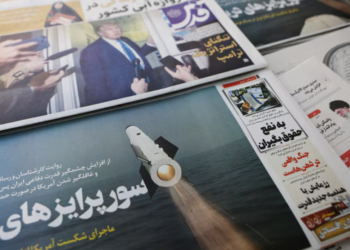China-Pakistan Economic Corridor (CPEC) and Turkmenistan–Afghanistan –Pakistan–India Pipeline (TAPI) project will be the game changer in the region and by 2017 we will be able to get rid of power shortages.
Dr.
Miftah Ismail, Minister of State and Chairman, Board of Investment said this at SAFA Conference 2016 organized by Institute of Chartered Accountants of Pakistan (ICAP).
He said that by 2025 country’s middle class population will have reached 100 million people which will be a big market.
Global manufacturers will find it attractive to reach Pakistan.
Moreover, Pakistan is full of potential we have 5th largest coal resources, 5th largest copper deposits, Indus can produce 60,000 MW energy.
Likewise we are full of natural resources and have talented human resources and stand as 5th largest middle class in the world.
Addressing the ceremony finance minister Ishaq Dar congratulated ICAT for arranging successful conference.
He said Pakistan has witnessed economic turnaround in last two years.
The CPEC will be game changer not only for Pakistan but for this whole region, he added.
Meanwhile, Enrique Blanco Armas, Lead Country Economist of The World Bank in Pakistan said ‘Governments in South Asia are collecting very little revenue, which affects the available fiscal space for priority spending, however, the situation is slowly improving, specially for Pakistan whose revenue has risen from 12.
4% in 2011 to 14.
4% in 2015.
’
Saman Kelegama of Institute of Policy Studies of Sri Lanka delivered a lecture on ‘Trade and Investments in South Asia: Opportunities and Challenges’.
He said services such as telecommunications, banking, energy, transport, and software services are among the main drivers of FDI in the region.
Mirza Hamid Hasan, former Federal Secretary, Water and Power, delivered his lecture on ‘Water- Economic Lifeline for Pakistan’ and said water has a special significance for Pakistan’s agriculture-based economy as 23% of GDP comes from agriculture and is the main source of sustenance for our rural population forming 55% of the whole.
‘Pakistan receives an average of 144 Million Acre Feet (MAF) of fresh water annually from the Indus River system comprising the Indus main and its tributaries.
Out of this 104 MAF is diverted to the canal irrigation system of the Indus Basin.
Another 50 MAF of water used for irrigation and domestic water supply is drawn from groundwater sources,’ added Hamid.
Central Council Member of ICAI CA.
J.
Venkateswarlu from India said regional integration in South Asia has remained weak on all fronts, and even in the face of pressing needs, regional cooperation on water and energy, for instance, barely gets the kind of attention that it deserves.
He was delivering his lecture on “Trade and Investment: Opportunities and Challenges”.
‘On trade, the story is even worse.
Intra-regional trade in Asia (as a geographic block) constitutes around 56 percent of the total trade, whereas the South Asian intra-regional trade-share hovers below the five percent mark,’ he added.
Mr.
Nadeem Babar – Chief Executive Officer, Orient Power Co.
(Pvt) Ltd while giving his presentation on “Corridor of Opportunities for Energy” said global demand will grow by 40 per cent during 2007-2030 with coal use rising most in absolute terms.
Talking about the trend in South Asia he said over 29% population is without electricity; this is 37% of the world population.
Region is a net importer of oil, gas, and coal and per capita electricity consumption in US is 12,272 kwh; in India 952 kwh and in Pakistan it is around 495 kwh.
He added that private ownership will result in better performance and lower cost and will attract more capital and free up public finances.
Adding more he said deregulation will help create open competition by removing barriers.
In last session Mr.
Adnan Gilani – Lead Prime Minister’s Delivery Unit (PMDU) also delivered his speech on China Pakistan Economic Corridor in the last session “Prosperity for South Asia – CPEC”.
He highlighted the benefits for Pakistan, China and the region through China Pakistan Economic Corridor and said due to the energy initiatives under CPEC, Pakistan is expected to meet its electricity demand by 2018.
Meanwhile, Mr.
Masood Khan – Director General, Institute of Strategic Studies, Islamabad and Mr.
Yaseen Anwar – Former Governor State Bank of Pakistan also took part in the last session while Q & A session and souvenirs distribution ceremony was also held after the the session.
Courtesy: The Nation

















